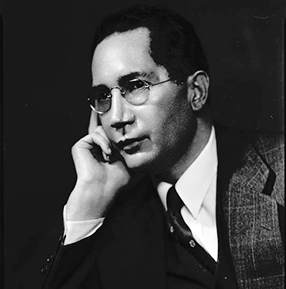I said, in drunken pride of youth and you
That mischief-making Time would never dare
Play his ill-humored tricks upon us two,
Strange and defiant lovers that we were.
I said that even Death, Highwayman Death,
Could never master lovers such as we,
That even when his clutch had throttled breath,
My hymns would float in praise, undauntedly.
I did not think such words were bravado.
Oh, I think honestly we knew no fear,
We loved each other so.
And thus, with you believing me, I made
My prophecies, rebellious, unafraid . . . .
And that was foolish, wasn’t it, my dear?
From Caroling Dusk (Harper & Brothers, 1927), edited by Countee Cullen. This poem is in the public domain.
“Challenge” appeared in Countee Cullen’s anthology Caroling Dusk (Harper & Brothers, 1927). In Fettered Genius: The African American Bardic Poet from Slavery to Civil Rights (University of Virginia Press, 2006), Keith D. Leonard, associate professor in the department of literature at American University, writes that the poem “adapts the Shakespearean tradition of immortalizing love in poetry to the blues condition of a blues people. [. . .] The poem basically claims that the power of art to immortalize an ideal love made so famous by [William] Shakespeare is a farce, an illusion that misled the [B]lack speaker-poet to a greater sense of his poetic power and of love than was true. In effect, “Challenge” can be read as transforming the sonnet into a bourgeois blues poem [. . .].”

